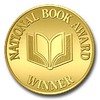 Occasionally, I get emails from readers troubled by how hard of some of the older works are to read—18th and 19th century novels. I feel their pain.
Occasionally, I get emails from readers troubled by how hard of some of the older works are to read—18th and 19th century novels. I feel their pain.
Great works are rarely easy breezy reads—think Dostoevsky, Melville, Hawthorne, Eliot, Faulkner, James, Conrad. These aren't the authors we lug to the beach. They all write books that are challenging for a host of reasons, not least of which is length. Their books also involve complex language and diction, arcane allusions and metaphors, and heady philosophical issues.
Even authors of a more recent vintage can be tough to tackle—Vladamir Nabokov, Salman Rushdie, Margaret Atwood, Don DeLillo, Thomas Pynchon—especially because of their post-modernist bent...which, among other things, means they constantly undercut their own meaings.
Here's the question: Should book clubs tackle the “great works” of literature? Does doing so make a club more "legitimate"? If so, in whose eyes?
Or is this a non-issue, completely irrelevant to the purpose of our book clubs...and especially to the pleasure we derive from them? Still...it's interesting to ponder.
Questions for Book Clubs:
- Is it enjoyable to read the "great works"? Which ones? Are they challenging in a good way—or too challenging to enjoy?
- Does reading critically acclaimed books, contemporary or classic, make us "better people"... or just give us bragging rights?
- If we choose not to read the "big" authors, are we missing out on something? If so...what?
